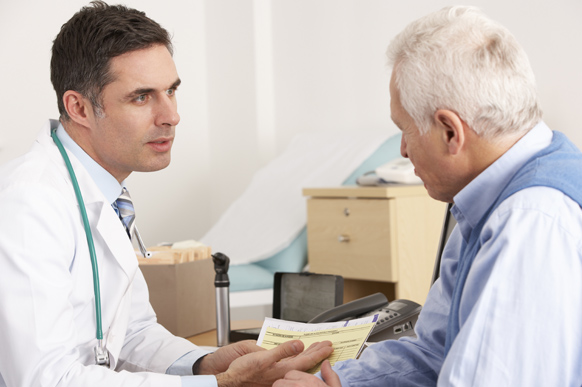Lung cancer is the second most commonly diagnosed cancer in both men and women but the most common cause of cancer death.
According to the American Cancer Society, approximately 238,000 Americans will be diagnosed with lung cancer annually. Cigarette smoking is the most common cause of lung cancer. However, exposure to asbestos, radon, environmental factors and secondhand smoke can cause lung cancer as well. Genetic factors can also affect risk for lung cancer.
There are two main types of lung cancer: non-small cell lung cancer and small cell lung cancer. These names refer to how a cancer looks under the microscope.Non-small cell lung cancer is the most common type of lung cancer and accounts for 84% of cases.
There are different types of non-small cell lung cancer, including:
- Adenocarcinoma – a cancer that forms in the outer parts of the lung.
- Squamous cell carcinoma – a cancer that forms from a cell lining the airway.
- Large cell carcinoma – a kind of non-small cell lung cancer, but the cell it starts from may not be known.
Small cell lung cancer is less common and accounts for the remainder of cases. Although the cells are small, they multiply quickly and can form large tumors that may spread throughout the body. Small cell lung cancer is almost always due to smoking.
SEARCH RTANSWERS

WHAT TO EXPECT
Once a cancer diagnosis is made, you will likely talk with your primary care physician along with several cancer specialists to discuss what happens before, during and after treatment.
CLINICAL TRIALS

SIDE EFFECTS

SIDE EFFECTS
PATIENT COMMUNITY







